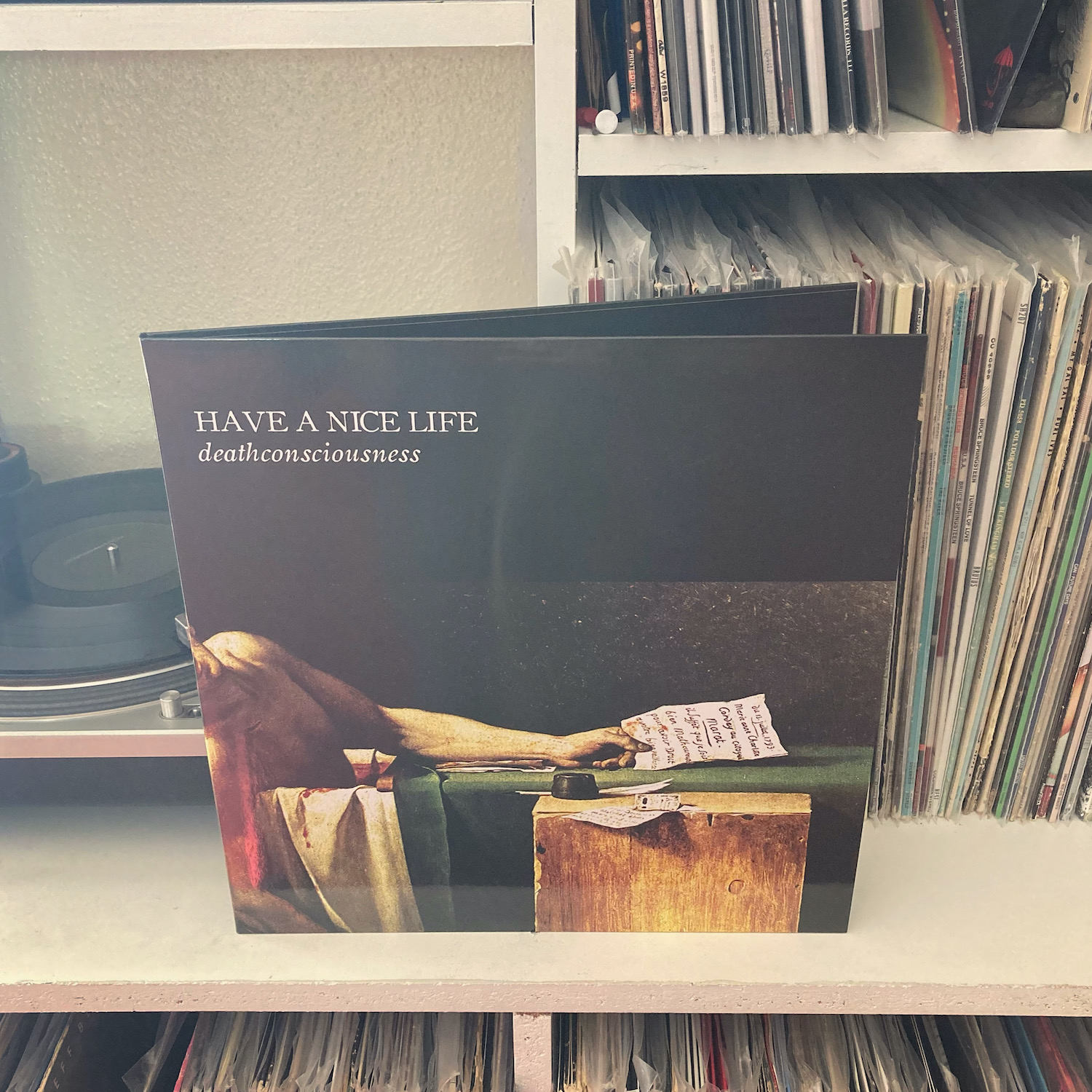
In the years since its release, I have often crossed paths with Deathconsciousness, the seminal debut record of goth/post-punk/shoegaze duo Have a Nice Life. At times, we’ve flirted. At others, I’ve tried to avoid eye contact. A few times, we sat down together and had a nearly incomprehensible conversation.
And yet, for all of its eldritch weirdness, there was something about this monolithic double album that has continued to call out to me. For a long time, the high prices of vinyl has kept me from exploring it any further, but when The Flenser announced another reissue (which came with a book!), I bought it almost out of impulse, unable to resist its alluring weirdness.
That impulse has paid off, as revisiting it again has proved it worthy of every ounce of its reputation.
Deathconsciousness was written in bits and pieces while bandleader Dan Barrett worked a job where he clocked in at 4:30am. Sitting alone at his desk in those early morning hours, he would frantically scribble down ideas. These ideas were then self-recorded in a truly lo-fi setup. The liner notes mention that all the songs were recorded using, “A computer, Logic, a Digitech GNX4 (for USB interface), a MIDI Controller, an old toy piano that Tim found, a shitty keyboard from the 80’s, a guitar, a bass…for a total cost of a about [sic] $1000.” Many of the tracks were recorded through his laptop’s built-in microphone, which was a major factor in giving the album its unique sound.
Surely, no one expected the album to get much attention. But then the internet does what it does best. Forums on Reddit and 4chan started sharing it around, and soon it became a cult classic.
And rightly so—Deathconsciousness is a truly one-of-a-kind album. It is bleak in a way that few records are bleak. There is a darkness to these songs that reflects the pre-dawn isolation with photographic clarity.
The album is divided into two halves, “The Plow That Broke the Plains” and “The Future.” While there’s not a strict sonic division, “The Plow that Broke the Plains” leans a bit more minimalist than “The Future.” Across both halves, the sonic palette shifts from meditative desolate soundscapes (“A Quick One Before the Eternal Worm Devours Connecticut“) to moody, industrial goth (“Bloodhail“) to urgent scorched earth post punk (“Waiting For Black Metal Records to Come in the Mail“) to almost anthemic post rock (“Earthmover“). Admittedly, “Earthmover may not sound very life-affirming out of context, but in the context of the album’s darkness, it’s practically joyful.
At eighty-five minutes, it’s a haul to get through. Especially when the tone is as desolate and sparse as this one. But there is something devastatingly gorgeous about this record that transcends its dourness. Dark and impenetrable though it may be, there is something almost irresistible about it. Chalk it up to morbid curiosity if you must, but it might just be better to put it on and let it roll over you.